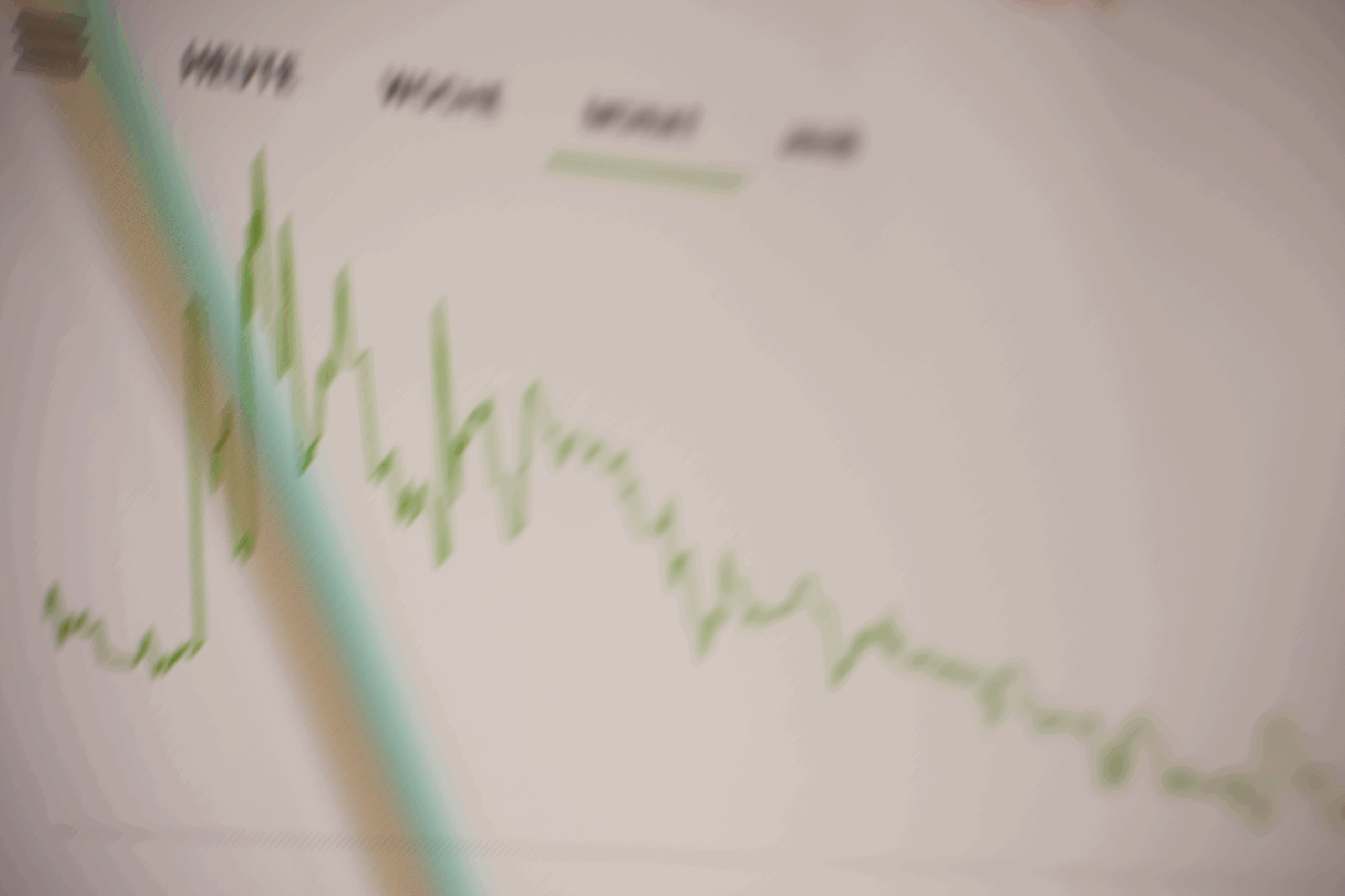Continue Reading
Biggest Finance Newsletter for Women
Join 200,000 other people interested in money, power, culture, and class.
Subscribe
In 2021, I earned more in a month than I had earned in all of 2018. I was 26.
Given all the buzz about oligarchy this year, I’ve been reflecting on the psychological experience of sudden material abundance: Becoming wealthier made me realize how much easier life is when your access to money is practically limitless. It also showed me how quickly “limitless” verges on “meaningless.”
During this shift, money transformed from something essential and tactile, like food or shelter, to pixels on a screen. It was possible to live luxuriously on one-third of that type of income—I bought a nice car, moved into more square footage, shopped for organic food. It might come as a surprise, then, that this was the first time I found myself angry about the existence of billionaires, newly disillusioned with “the system.” Not in spite of my income, but because of it.
When I earned $54,961 in 2018, vast financial excess was a thought experiment, an abstraction. Back then, defending things like “CEO pay” felt effortless. I figured I deserved my $54,961; why wouldn’t the same be true of the suit atop the Carlyle Group and his $186 million? We were both earning our wages! But experiencing the immensity of even a fraction of that wealth rendered the existence of $186 million pay packages (and billionaires generally) viscerally absurd. After all, “a million” is to “a billion” what a Barbie Dream House is to the Empire State Building. When I felt overwhelmed by the unspeakable bounty of my pink plastic shack, the ruthless accumulation of skyscrapers suddenly looked sort of pathetic. That anyone would go to such desperate lengths to influence policy or avoid taxation or do whatever the hell else the Koch brothers have done for decades to ensure Americans never get viable public transit no longer seemed like an understandable impulse that accompanied wealth—it just seemed scary.
It’s well known that extremely rich people use their money and access to refashion the world to their liking. Forty percent of all political donations come from the top 0.01%. Researchers have tried for years to study the real impact that the ultra-rich have wrought on American policy, but formal studies are challenging: This group is not exactly forthcoming about their desire to privatize Social Security (although…). Even if they were, they employ legions of public relations professionals to sane-wash and altruize their motivations, and, if that weren’t sufficient, they mostly own the platforms on which these things could be debated.
At the very least, evidence suggests the political views they’re paying to implement don’t align with the majority. While nearly 90% of Americans agree that “the government should spend what’s necessary to ensure all children have good public schools,” only one-third of the richest 1% feel the same way. Fifty-nine percent of the general population say they’d be willing to pay higher taxes in order for every person to have healthcare; only 41% of the richest 1% say the same. It appears having your own well-being guaranteed many times over actually makes you less concerned with the well-being of others.
Still, our modern economic logic urged me to seize my lightning bolt moment of good fortune and save like hell. Having marinated in the juices of FI/RE methodology for years before my earnings shot up, high savings rates and big investment contributions were just the standard price of entry. As you earn more, you invest more—and if you do this for long enough, eventually, you will become wealthier than you need to be, since the technical objective is to amass a pile of money large enough that whatever you use is always replenished. If all goes according to plan, you should actually become richer as time goes on, even as you withdraw what you need. As we careened closer to our goal, it became obvious that at some point, our investments would reach a tipping point that would render future contributions not quite pointless, but far less meaningful. I wondered if choosing to get richer anyway would be less a validation of my brilliance than an indictment of my character.
Usually, our cultural norms do the heavy lifting to relieve that cognitive dissonance. We’re adept at discussing what our spending could’ve generated if it were invested instead; we’re fluent in the language of opportunity cost when confined to our individual balance sheets. Why, then, is it less common to acknowledge the same is theoretically true of personal wealth that otherwise could’ve benefited someone else?
The laws of capitalism reward immense black holes of insatiability with more matter, their gravitational pull warping and distorting space-time for everyone else. But black holes are just collapsed stars. Something that was once resplendent, sharing its light with everyone, caves inward from the pressure of its own immensity. The more money you accumulate, the stronger this gravitational pull becomes; the more you have to cling to ideas about individual deservingness to silence the small voice reminding you that even now, down the street, someone is sleeping on the ground with an empty stomach. It’s true that the system incentivizes you to continue hoarding, but that truth can deflect a quieter one: that doing so is, ultimately, still a choice.
In Nathan Robinson’s review of Confronting Capitalism: How the World Works and How to Change It, he emphasizes that economic theories across the spectrum shy away from describing hoarding or greed as a “choice.” But a structural incentive is not the same thing as a mandatory imperative, he argues, writing: “Both socialists and capitalists have good reasons to say that capitalists aren’t ‘selfish’ but it is ‘the system’ that compels them to act as they do. So an argument that makes little sense and is obviously at odds with reality (where rich people could easily choose not to be rich, and capitalists make profits by choice) persists because it is convenient for both the system’s proponents and critics to believe it.” The ‘choice’ framework feels, admittedly, a little awkward to confront directly, because it forces me to acknowledge where I am not a passive victim of capitalist logic, but a willing participant with a Porsche.
Reading Robinson’s candid analysis—that it actually is a choice to get as rich as possible, and Adam Smith is not holding the invisible hand over your eyes—left me wondering when accumulating wealth to the extent required for complete financial autonomy is justifiable. This might introduce the most prosocial interpretation of frugality: not because self-discipline is intrinsically noble, but instead because it might spring from a generative desire to be a steward of resources for your world and the other people in it.
This is less a financial dilemma than a spiritual one, which might be why most worldviews that attempt to contend with it are religious. In Thai Buddhism, a belief in interconnectedness supports the “sufficiency economy” philosophy, which recognizes “overindulgence” as “inevitably related to others’ suffering.” Islam prescribes zakat, a 2.5% annual “wealth tax.” In Judeo-Christian traditions, the ancient practice of tithing, a word that means “one-tenth,” refers to giving away 10% of your income. While plenty of prosperity gospel preachers and religious institutions have capitalized on this principle to furnish their private jet funds or commit strip mall fraud, the practice is partially intended to demonstrate that there’s a difference between something being in your possession and being rightfully yours. This is anathema to the religion of capitalism, which assumes market forces always allocate resources according to who deserves them most.
Modern American culture puts billionaires, who I’d consider pathologically self-interested, on panels and magazine covers, while at the same time doing things like banning homelessness (not by limiting how many houses one person can buy then leave empty, but by criminalizing sleeping outside). There is a relentless effort to valorize the former and dehumanize the latter. It feels important to try to retain our humanity anyway: that warm-blooded, connective tissue that compels inconvenient action on someone else’s behalf, even in a society intent on draining us of this impulse and embalming us instead with cold, detached reverence for people like Elon Musk.
Soon, we’ll be downsizing from a four-bedroom home to a two-bedroom apartment, which will save about $2,000 monthly. My FI/RE bona fides feel less useful than usual for allocating those savings, as if some force is gently elbowing me in the ribs, whispering that this is the simple truth made literal: When you take less, others can have more. In a country with 600 billionaires and a handful of near-trillionaires, redistributing $2,000 per month to shelters in our new neighborhood feels a little like marching down to the beach with a Fisher Price bucket to fend off a tsunami. As Jordan Weissmann writes for Slate, the nature of capital and technology keeps pushing the highest rung on the ladder farther away, and it’s true that individual choice among the 99% will not address the dynamics that have caused the top 1% to nearly double their share* of the nation’s wealth in the last 50 years.
But sometimes the existence of grotesque wealth makes it easy to overlook the power of regular affluence. It becomes tempting and justifiable to offload the responsibility to a few hundred or thousand people who have the most, granting them even more power to shape our outcomes in the process. “Enough” or “not enough” is ultimately a binary state—whether you exceed it by a million or a billion, it’s still a surplus. “Philanthropy” in the traditional sense is not the solution to this problem, to be sure, but part of what’s felt important to me lately is characterizing my decisions as just that—decisions. Doing so makes choosing differently feel possible.
*In 1976, the top 1% owned 22% of total wealth. By 2023, the number was 35%. This 13 percentage point increase was provided by a commensurate decrease in middle and upper-middle class wealth. The bottom half of Americans, who owned 1% of all wealth in 1976, still own roughly 1%.
January 22, 2025
Looking for something?
Search all how-to, essays, and podcast episodes.
Explore
While I love diving into investing- and tax law-related data, I am not a financial professional. This is not financial advice, investing advice, or tax advice. The information on this website is for informational and recreational purposes only. Investment products discussed (ETFs, index funds, etc.) are for illustrative purposes only. It is not a recommendation to buy, sell, or otherwise transact in any of the products mentioned. Do your own due diligence. Past performance does not guarantee future returns.
Money with Katie, LLC.
Terms & Conditions | Privacy Policy
This Site Was Built by Brand Good Time



